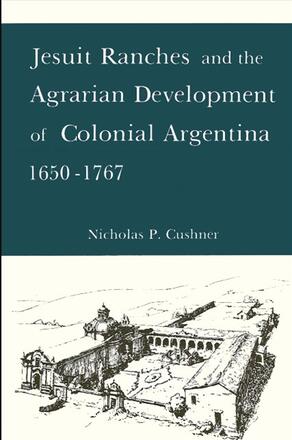
Jesuit Ranches and the Agrarian Development of Colonial Argentina, 1650-1767
Alternative formats available from:
Description
Jesuit Ranches and the Agrarian Development of Colonial Argentina, 1650-1767, is the last book in a trilogy that examines Jesuit economic activity in three major geographic regions of colonial Spanish America. The first, Lords of the Land, focuses on Jesuit sugar and wine production on the Peruvian coast, primarily from the viewpoint of the agricultural geographer. The second, Farm and Factory, examines the complex of Jesuit farm, wool, and textile production in Interandine Ecuador insofar as it contributed to the beginnings of agrarian capitalism in Latin America.
This book examines the agro-pastoral development of colonial Argentina, primarily Tucumán, its farms, its ranches, and its trade connections with Alto Peru. Three major geographical regions are thus studied, each specializing in a distinct complex of economic enterprises, but each linked by trade routes that crossed snowy mountains and traversed barren deserts.
Nicholas P. Cushner is Associate Professor of History at Empire State College, State University of New York.
Reviews
"This book brings a wealth of important information on a topic never treated before" — Susan M. Socolow, Emory University.
"Cushner culls intimate information about important rural production from the account books and letters of agricultural estates. The sources are among the most informative available for any period of Latin American history—even for today—that I have seen. This is scholarship at its best. " — Jonathan C. Brown, Northern Illinois University.